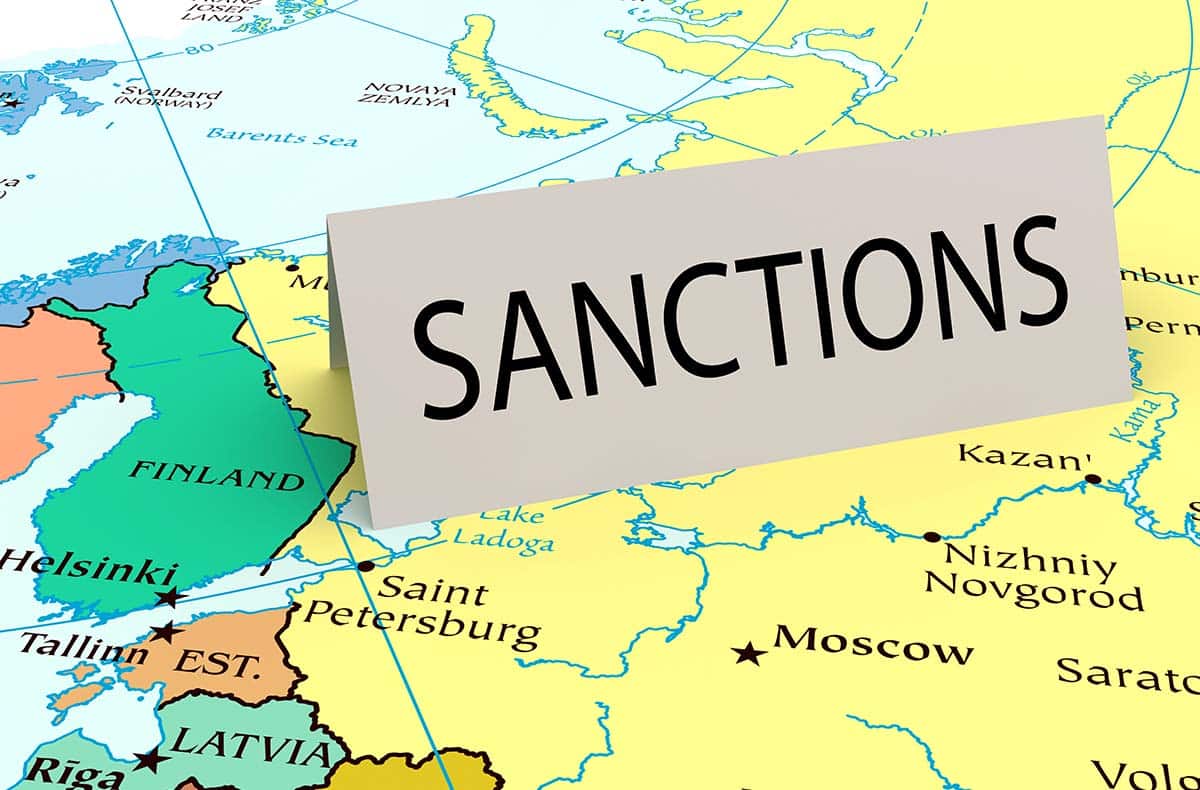
As Russia refocuses its illegal war on the Donbas region, professional services lobby for relaxation of business bans. But what’s the point of sanctions unless we enforce them?
“Everyone thought this would be done and dusted by now but are beginning to realise this could go on for years.” So one impatient business executive told The Financial Times recently, amid the dawning realisation that sanctions against Russia—and swathes of US, UK and European Union business involving Russian partners—are here to stay until Vladimir Putin ceases hostilities in Ukraine.
But while I’m sympathetic towards legitimate businesses adversely impacted by sanctions—which now include prohibitions on professional services such as accountancy, management consultancy and PR—fretful responses by worried executives are something we’ll have to live with for a while.
Businesses that relied heavily on Russian clients or supply chains are right to be worried about cash flows, particularly following COVID-19. For that reason, we have seen several sectors lobby for relaxation of sanctions on their specific business activity—including major accountancy firms, banking and management consultants.
I get it. And both the US and UK governments have allowed limited exceptions to sanctions so that crucial parts of their economies are protected.
But what is the point of sanctions unless they stop a wide range of business activity from which Putin’s regime would otherwise glean a direct financial benefit with which to fund its illegal war? Sanctions, by their nature, are designed to strangle economies and force corrupt or aggressive regimes into behavioural change. Cherry-picking many exceptions runs anathema to these aims.
What has happened in the past few weeks is the gradual realisation that the longer Putin’s troops stay inside Ukraine, the longer sanctions will remain in place. It is harsh on affected businesses, of course. But what is the alternative? Rewarding Putin’s illegal war?
Indeed, in recent days the US and UK has come under renewed political pressure to sanction more financial bodies linked to the Russian state—including Moscow’s banking deposit agency.
A letter sent to President Biden by senior members of the US Congress on 16 May urges the White House to “closely examine” the Deposit Insurance Agency (DIA) “with regards to future sanctions potential.”
The DIA was established in 2004 as a Russian state-owned corporation to act as a national banking deposit insurance scheme. It is also the official bankruptcy administrator of financial institutions deemed insolvent by Moscow.
Senior staff at the sanctioned Central Bank of Russia dominate the DIA’s board. But the agency has so far remained untouched by international sanctions and continues to pursue bankruptcy claims against former Russian bankers in the UK and elsewhere.
The letter sent to President Biden, signed jointly by Democrat Steve Cohen and Republican John Curtis, suggests that while the DIA’s role in pursuing settlements from collapsed Russian banks “seems innocuous enough,” the agency’s role could be “more nefarious.”
The Congressmen suggest the DIA may be leading “Kremlin-directed efforts to nationalise the assets of targeted Russian financial institutions, funneling the assets of privately owned businesses to now-sanctioned Russian state banks.”
They are concerned that such DIA activity could be used to “fund Putin’s war chest.” Senior sources in Moscow deny political motivation for the DIA’s work. Concern over the DIA’s activity during sanctions against Russia has also been raised by members of the UK Parliament.
On 16 May, Conservative MP Dan Kawczynski asked foreign secretary Liz Truss what assessment she had made “of the role of the DIA in the Russian state’s ability to secure and repatriate assets from abroad?”
Kawczynski also asked Truss to explain why the DIA has yet to be sanctioned. UK members of parliament are concerned that legal services firms in London continue to act on behalf of the DIA and other Russian bodies during sanctions. When Truss recently imposed fresh restrictions prohibiting Russia’s use of UK professional services companies, she stopped short of including legal services.
Bob Neill, chair of the UK parliament’s justice select committee, said he would keep a watchful eye on these matters, including legal cases that could end in a financial benefit to the Russian state. “Certainly, I’d be interested to take a look,” he said. But Neill said he has no plans to launch an official inquiry by the committee.
Andy Slaughter, the UK’s shadow solicitor general, said he understood the difficulties in preventing individuals or organisations from accessing legal representation. But he added that any money paid to the Russian state or associated bodies via court settlements during sanctions would be widely viewed as “obnoxious.” Slaughter added: “Maybe the compromise is that proceedings could continue but that any settlements involving the Russian state could be frozen during sanctions?”
One concern to UK politicians has been the DIA’s ongoing involvement in bankruptcy proceedings against former Russian banker Anatoly Motylev, whose Rossiysky Bank collapsed in 2015, owing £2 billion. The DIA is the biggest creditor in a £800 million London-based bankruptcy case against Motylev and stands to gain up to £400 million from any settlement or asset dispersal. The suit was initiated by London-based litigation finance firm Harbour. Audit giants Grant Thornton act as court-appointed trustees in the case, and the London-based law firm CMS advises on bankruptcy proceedings.
Let me be clear: there is no suggestion of wrongdoing by any of these UK-based firms and some of them already operate at an “arm’s length” of the court proceedings. A spokesman for Harbour confirmed: “Harbour is not involved in the funding of this case and has not been involved since before June 2021.”
But the litigation investor refused to confirm whether it will receive payment for any future settlements for creditors such as the DIA and other Russian entities. This all cuts to the heart of the debate about sanctions and the effects on domestic businesses. There remains political concern about involvement in activities which could yet lead to more cash in Putin’s coffers.
It seems the business world will have to deal with this fallout for some time yet.


